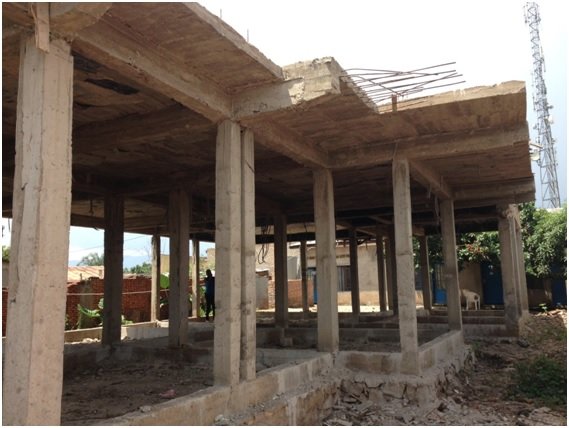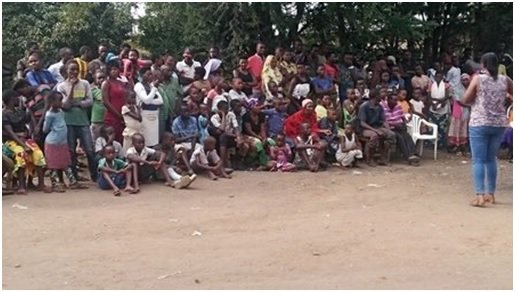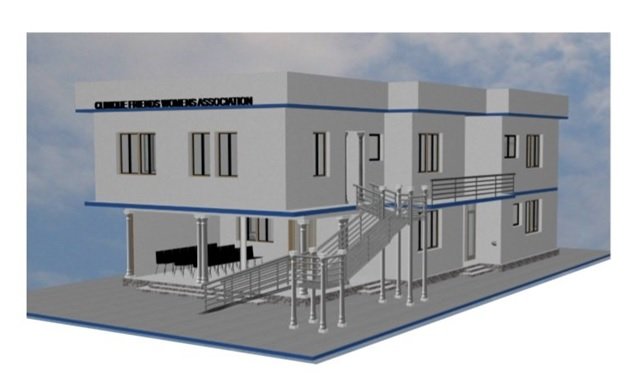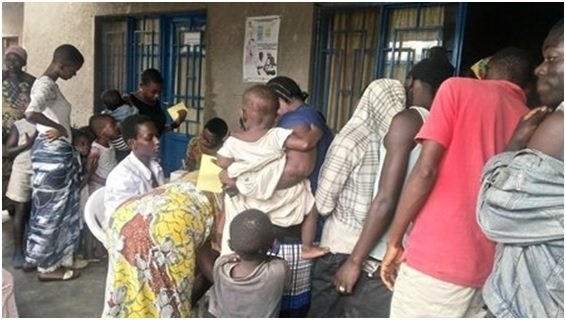By David Zarembka | Financial Advisor
Incredible Facts about the Ntaseka Clinic
Burundi is one of the poorest countries in the world. The war between 1993 and 2005 retarded the development of the country. Then since the disputed election in 2015, Burundi has again been beset with civil unrest. The following table compares the situation in Burundi with that of the United States
Burundi United States
Fertility rate 5.93 children per woman 1.87 children per woman
Maternal mortality rate 712 per 100,000 women 14 per 100,000 women
Infant mortality rate 57.4 per 1000 births 5.7 per 1000 births
Doctors 5 per 100,000 people 259 per 100,000 people
Hospital beds 80 per 100,000 people 290 per 100,000 people
I remember in 2002 when Cassilde Ntamamiro, a nurse, first proposed the Ntaseka Clinic for HIV+ women. Her sister and brother-in-law plus their two children had all died of AIDS so she felt a moral obligation to work on this issue.
I remember that at that time HIV/AIDS was a taboo subject in Burundi. This was due to the fact that to discuss the disease one needed to discuss about sex. Anyone who had the disease was considered a sinner since she/he or the spouse had to have been unfaithful.
I remember that Cassilde wanted this to be a women’s run organization because the men in Burundi Yearly Meeting would not support such an activity. Therefore she organized and registered the Friends Women’s Association which has been responsible for the clinic ever since.
I remember that due to the stigma about HIV/AIDS the clinic had to be a multi-service clinic serving a total clientele with their health needs.
I remember in 2005 when Felicite Niyonzima was the first Quaker in Burundi who would publicly admit that she was HIV+. As she spoke at Quaker churches and with male pastors, she was instrumental in tackling the silence and shame of being HIV+. A few years ago when I was in Burundi, I happened to meet Felicite again and she and her daughter, who ended up not being HIV+, were doing well.
I remember when we started the clinic in a totally inadequate rented storefront. I then helped arrange for Cassilde to come twice to the United States on fundraising tours. Sufficient funds were raised to buy the plot where the clinic now stands plus a second plot behind it which is being used for the Maternity Ward.
I remember helping to organize work camps to build the clinic, its walls, and later required additions for a consulting room for people who were tested for HIV/AIDS and a special room for maternity and children. The many work campers and long-term foreign volunteers contributed so much, both physical and financial, to the building of the clinic. I cannot thank them enough for their contributions
I remember that contrary to this positive report, since 2002 there were many difficulties, obstacles, financial problems, and so on. Step by step the clinic has grown to what it is now.
I remember in 2007 when Cassilde moved to the United States to be with husband who received political asylum after the conflicts in Burundi. Dr. Alexia Nibona, still one of the doctors at the clinic, took over the clinic at that time. It was in 2014 that Parfaite Ntahuba filled the new position as Coordinator for Ntaseka Clinic.
I also note that Marceline Girukwishaka has been the loyal bookkeeper since the beginning in 2002 and that Joselyn Dusabe has been clerk of the very active FWA Board for many years.
My involvement with the Friends Women’s Association/Ntaseka Clinic has been one of the most gratifying activities in my life.
__________________________________________________
Please consider contributing to the building of the Maternity Ward.
To donate click ongoto.gg/32980.
__________________________________________________
The next step in the development of the Ntaseka Clinic is the construction of its Maternity Ward. As you can see from the chart above the maternal mortality rate is 712 per 100,000 births – 8th highest in the world. The infant mortality rate of 57.4 babies per 1000 births is the 18th highest in the world. Since the clinic is in a poor section of Burundi the rates there must be even higher. These high rates are due to the fact that most women give birth at home with little or no professional help. Therefore the Maternity Ward where professional medical care will be provided will save the lives of many babies and mothers.
Moreover, since most of the 244 women under ARV treatment at the clinic are young, many will give birth. Giving birth at home will increase the likelihood of transmission of the virus from mother to child. There is nothing sadder than the fact that some innocent children, through no fault of their own, have become HIV+. Growing up in poverty is hard enough in itself, but then having the burden of being HIV+ significantly increases that burden. The clinic runs a monthly support group for the HIV+ children to encourage them, convey the facts of the disease to them, and stress the importance of taking their drugs regularly.
The progress on the construction of the Maternity Ward can be seen in the picture at the top of this report. Much of the funding for the construction to date has come through a major grant from Vancouver Island Monthly Friends Meeting in Canada. We thank them so much for their support. The next goal is to brick in the building. The cost of the bricks, cement, and labor is $3,000. To date the Ntaseka Clinic has raised only $200 towards this goal.
Please help out. Your contribution will help towards saving the lives of women and children in a poverty area of one of the poorest countries in the world. To donate click on goto.gg/32980. Please also forward this Report to anyone whom you think might want to support the building of the Maternity Ward.
Thanks so much for your consideration of this request.
David Zarembka
Project reports on GlobalGiving are posted directly to globalgiving.org by Project Leaders as they are completed, generally every 3-4 months. To protect the integrity of these documents, GlobalGiving does not alter them; therefore you may find some language or formatting issues.
If you donate to this project or have donated to this project, you can receive an email when this project posts a report. You can also subscribe for reports without donating.
Support this important cause by creating a personalized fundraising page.
Start a Fundraiser


